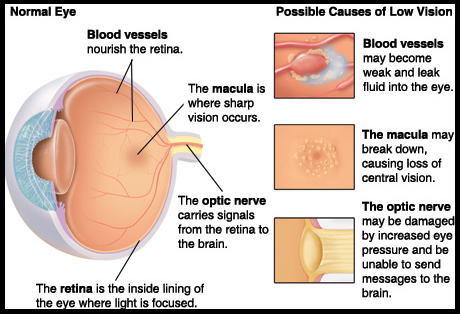LOW VISION & VISUAL REHABILITATION
The Low Vision and Visual Rehabilitation Service can help individuals with all levels of vision loss ranging from mild visual impairment to legal blindness. Our comprehensive, multi-disciplinary approach to care provides a team of specialists from ophthalmologists to optometrists to occupational therapists who are trained to evaluate your condition and identify an individualized rehabilitation plan to help you maximize remaining functional vision and maintain independence in daily living.Low vision can occur at any stage in life, but it primarily affects the elderly. Most people develop low vision as a result of eye conditions and diseases, including macular degeneration, diabetic retinopathy, glaucoma, cataracts, retinitis pigmentosa, and stroke. Some causes of low vision, such as cataracts, are treatable and good vision can be restored. When diagnosed early, other conditions that lead to low vision, such as wet macular degeneration and glaucoma, can be halted or slowed although vision lost is irreversible. A typical low vision evaluation involves a functional assessment including a low vision refraction and prescription of magnifiers, telescopes and assistive technology as appropriate. In addition, visual skills training such as eccentric viewing and blindness skills are provided as are referrals to comprehensive blind rehabilitation centers. The low vision service does not have minimum vision requirements, but works with all patients who have functional impairment due to an eye disease or condition.













